Shhh! Here’s the Best Soundproof Flooring for Minimizing Noise in Your Home

In today’s fast-paced world, creating a tranquil and serene home environment is more important than ever, and one of the most significant factors contributing to a peaceful home is effective noise reduction. Whether it’s the pitter-patter of little feet, the thump of high heels, or the hum of daily activities, unwanted noise can disrupt your peace and quiet.
Thankfully, the right soundproof flooring can make all the difference. This guide will explore the best flooring materials, design considerations, and installation practices to help you achieve the quiet home you’ve always wanted.
Why Flooring Matters for Noise Reduction
The type of flooring you choose plays a crucial role in the acoustics of your home. That’s because different materials have varying capacities to absorb sound, with some being more effective at minimizing noise than others.
Here are some things to consider when shopping for sound-absorption flooring:
- Sound Absorption: How well does the flooring material absorb sound?
- Insulation: Some flooring options provide better insulation than others, so do your research.
- Durability and Maintenance: Choose durable noise-reducing flooring that can withstand daily wear and tear while maintaining its sound-absorbing properties.
The 5 Best Materials for Floor Noise Reduction
Creating a peaceful home environment starts with choosing the right flooring. Here are five flooring materials for quiet homes like yours.
1. Carpet: The Ultimate Noise Absorber
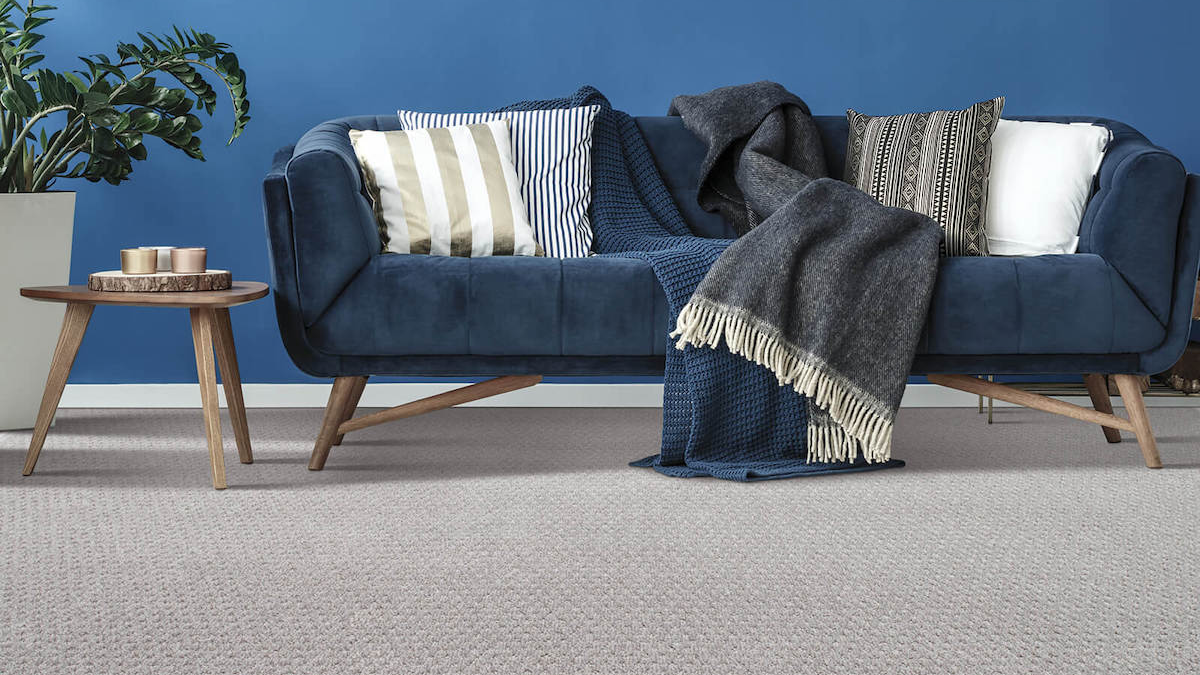
Using carpet for noise reduction has long been a top choice for homeowners. Carpets are inherently excellent at absorbing sound, thanks to their soft fibers and underlayment. Carpet not only reduces noise but also adds a stylish touch to your home’s flooring design. Patterned carpet can help mask stains and wear as well, making it a practical and aesthetic choice. Additionally, high-quality carpets often come with cushioned padding that further enhances their noise-dampening properties. Shop our huge selection of residential broadloom carpet today!
Benefits of Carpet:
- Excellent sound absorption
- Adds warmth and comfort
- Available in various styles, colors, and patterns
2. Cork Flooring: Natural and Quiet

Cork is a natural material known for its excellent acoustic properties. It’s an eco-friendly option that effectively absorbs sound and reduces impact noise. Cork flooring is soft underfoot, making it comfortable to walk on while providing a quieter environment. It’s also available in various finishes and styles, allowing you to incorporate it seamlessly into your flooring design.
Benefits of Cork Flooring:
- Superior sound absorption
- Eco-friendly and sustainable
- Comfortable underfoot
3. Luxury Vinyl Flooring (LVF): Stylish and Sound-Dampening
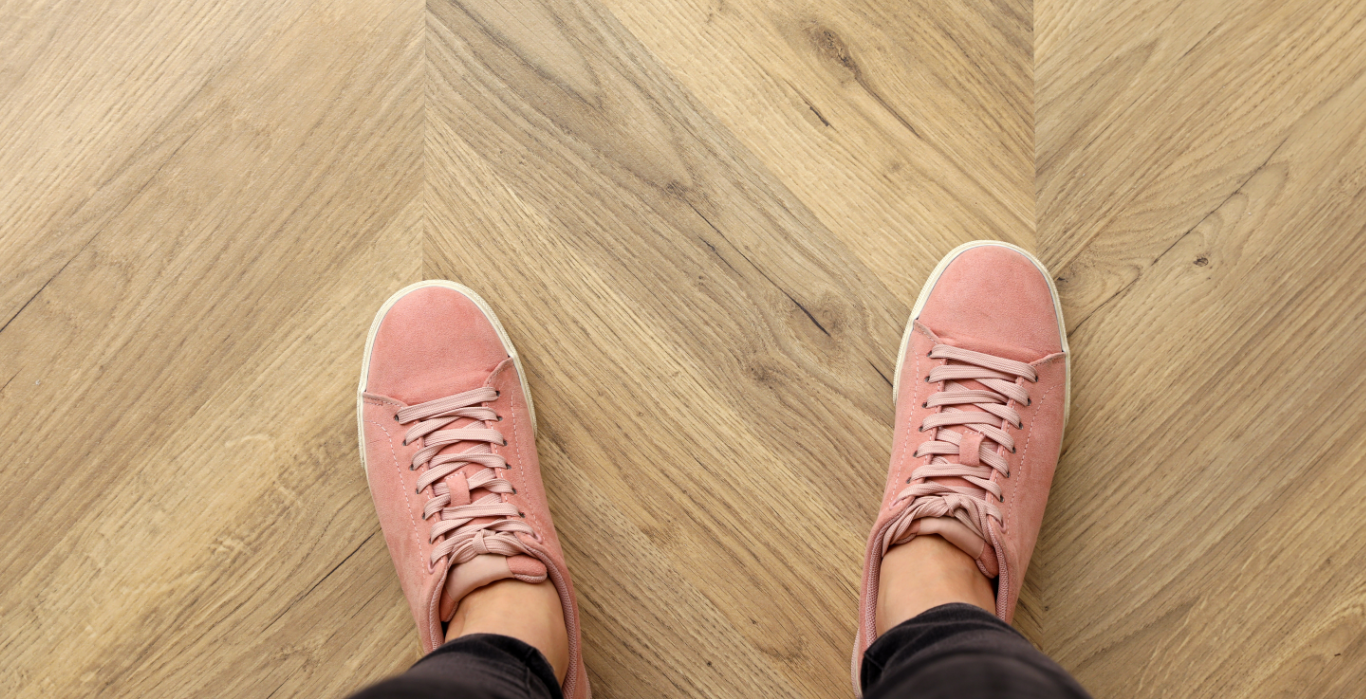
Luxury Vinyl Flooring (LVF) is a versatile option that combines style with functionality. It’s designed to mimic the look of natural materials like wood and stone while providing excellent noise-reduction properties. LVF often comes with a cushioned backing that helps absorb sound, making it a great choice for minimizing noise in your home. It’s also durable, water-resistant, and easy to maintain, making it a popular choice for modern flooring design. Shop our incredible selection of luxury vinyl flooring today!
Benefits of Luxury Vinyl Flooring:
- Effective sound absorption
- Stylish and versatile
- Durable and low-maintenance
4. Rubber Flooring: The Silent Solution
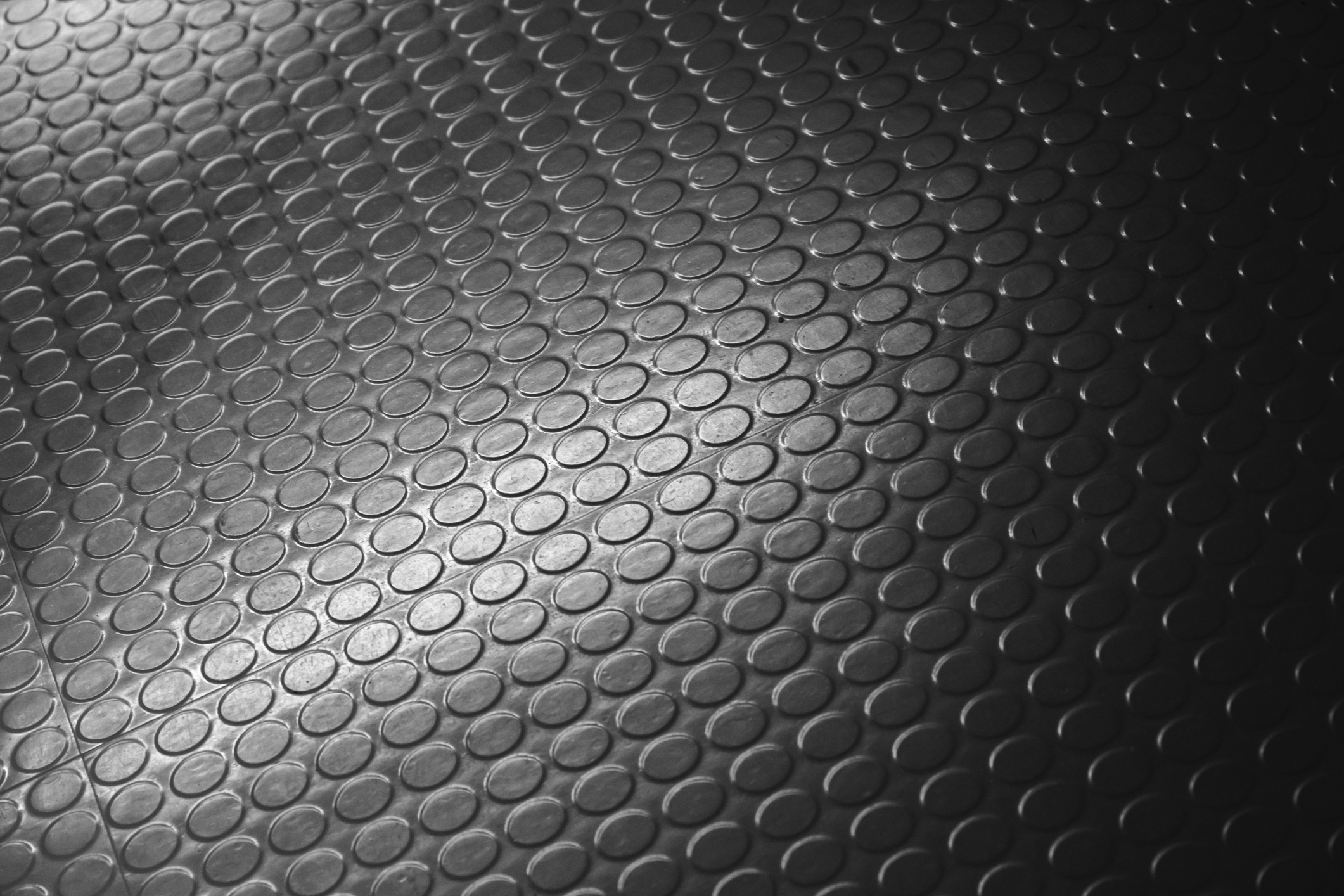
Rubber flooring is commonly used in gyms and commercial spaces, but it’s also an excellent option for homeowners seeking significant noise reduction. Rubber’s dense composition makes it highly effective at absorbing sound and reducing impact noise. It’s also durable and easy to clean, making it suitable for high-traffic areas. Available in various colors and patterns, rubber flooring can be incorporated into a variety of flooring designs.
Benefits of Rubber Flooring:
- Excellent sound absorption
- Durable and resilient
- Available in various styles
5. Engineered Wood (with Soundproof Underlayment)
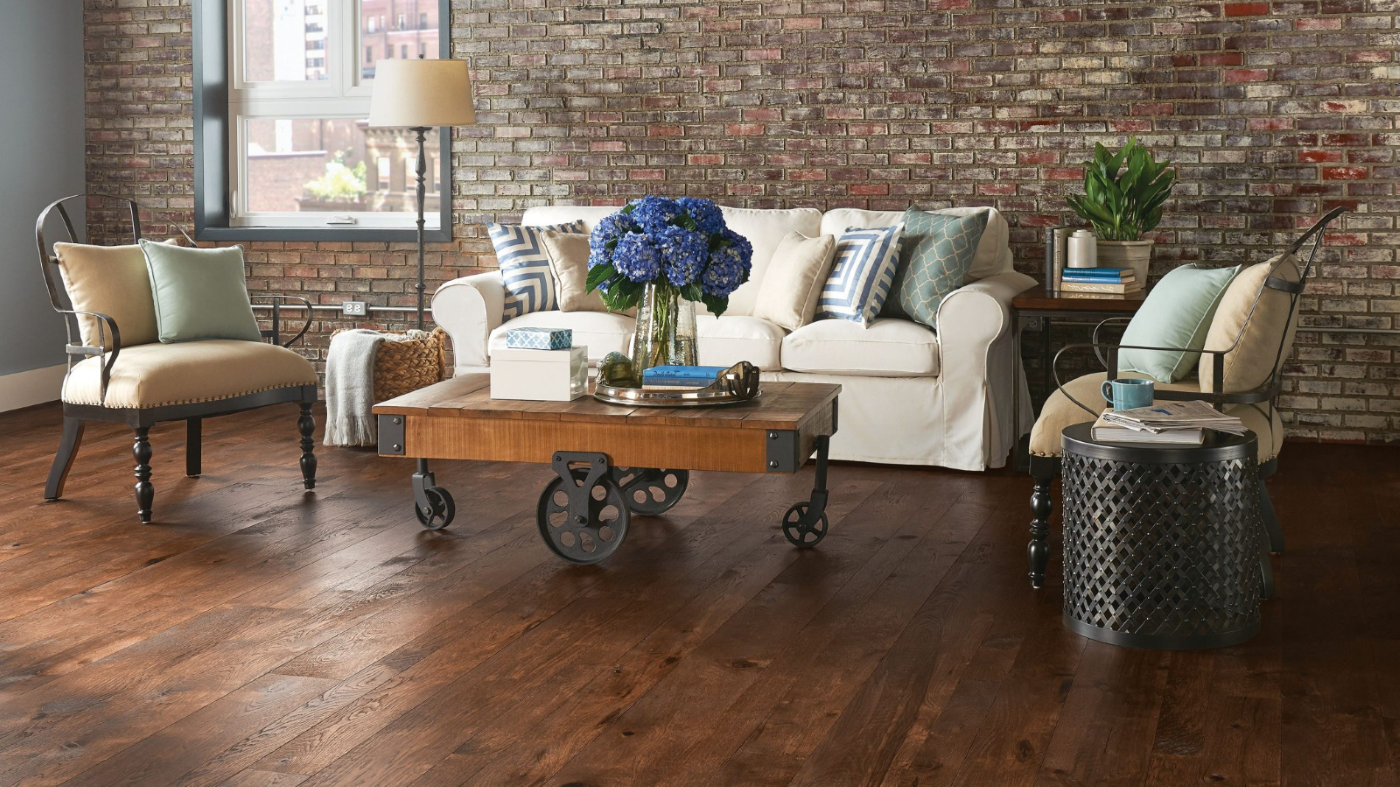
When it comes to noise-reduction flooring, hardwood is probably not the first thing you think of, but engineered wood with a soundproof underlayment can be a very effective solution. The underlayment acts as a barrier that absorbs sound and reduces noise transmission. This combination provides the elegance of wood flooring with the added benefit of noise reduction. It’s an ideal choice for those who want the look of wood without the accompanying acoustics. Pair it with an elegant area rug for even greater sound dampening! Shop our wide selection of engineered hardwood flooring today!
Benefits of Engineered Wood:
- The aesthetic appeal of wood
- Noise reduction with soundproof underlayment
- Durable and stylish
Flooring Design for Noise Reduction
When selecting noise-dampening flooring, it’s important to factor in the overall design and installation. Here are some key tips to consider:
- Underlayment Matters: The type of underlayment you choose can significantly impact the noise-reducing properties of your flooring. Opt for high-quality underlayments designed to absorb sound and provide additional insulation. Materials like cork, rubber, and foam are excellent choices.
- Layering for Maximum Effect: Layering different materials can enhance noise reduction in your home. For example, combining a patterned carpet with a thick underlayment can create an effective sound barrier. Similarly, incorporating area rugs on top of hard surfaces can help absorb sound and further reduce noise.
- Room-Specific Solutions: Different rooms in your home may have varying noise reduction needs. For living areas and bedrooms, opt for softer, more absorbent materials like carpet or cork. In high-traffic areas like hallways and kitchens, consider durable options like LVF or rubber that can withstand water and wear while also minimizing noise.
Flooring Installation for Noise Reduction
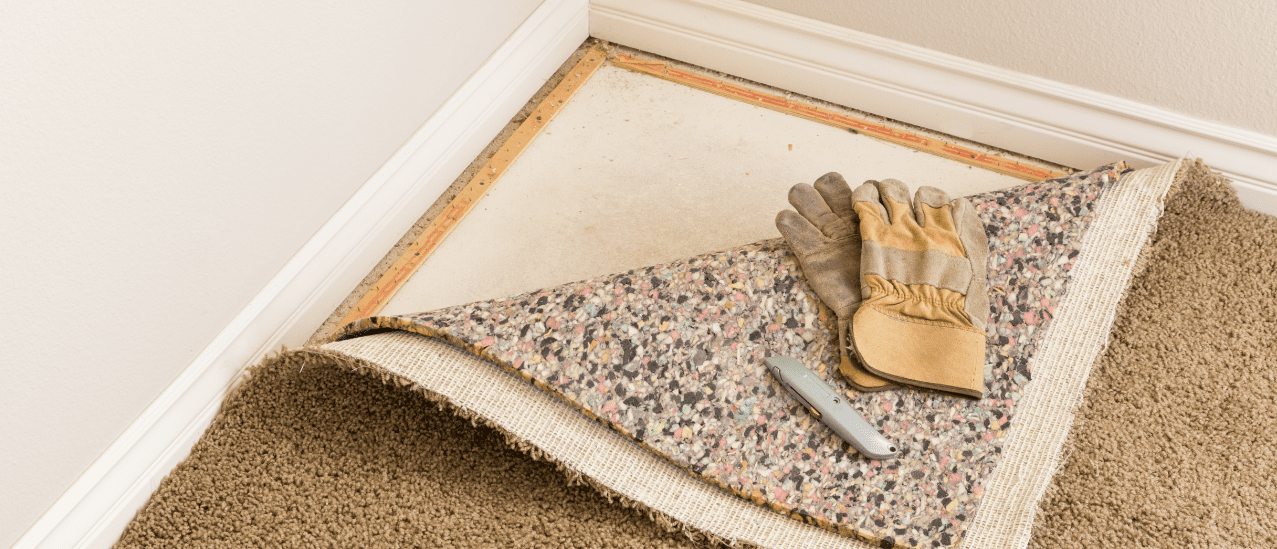
Proper installation is key to maximizing the noise-reducing properties of your flooring. Here are some best practices to follow:
- Professional Installation: Hiring a professional ensures that your flooring is installed correctly, with all seams and edges properly sealed. This prevents gaps that can allow sound to travel through.
- Floating Floors: Floating floors, which are not glued or nailed down, can provide additional noise reduction. The space between the flooring and the subfloor acts as a sound barrier, reducing the transmission of noise.
- Tight Sealing: Ensure that all gaps around the edges of the flooring are sealed tightly. This prevents sound from leaking through and enhances the overall effectiveness of the flooring.
Enjoy a Quieter Home Today With Hamernick’s
Whether you opt for patterned carpet, luxury vinyl, or engineered wood, each material offers unique benefits for soundproof flooring. Consider your specific needs and preferences, and don’t hesitate to consult with our expert residential design team to find the perfect flooring for your home.
At Hamernick’s, we offer a wide range of flooring options that combine style with functionality. Visit our shop to browse all the latest and greatest residential flooring products.
"*" indicates required fields

